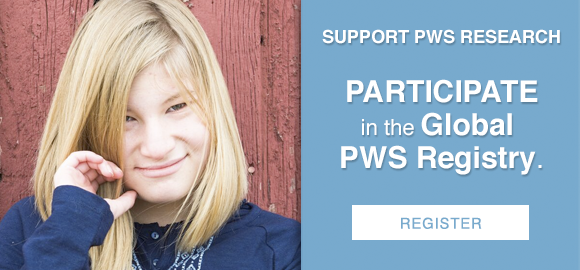As a rare disorder, PWS is most well-known to the medical community and general population for hyperphagia, or intense food-seeking behavior. However, family members, caregivers, and individuals with PWS know that behavior difficulties and mental health can often impact quality of life as much, or sometimes even more, than hyperphagia. Here, we focus on data from the Global PWS Registry exploring how many individuals with PWS have seen a mental health professional, are receiving mental health therapies, and the impact of those therapies.
.png?width=600&height=1500&name=Therapies%20%202023%20Registry%20Infographic%20(1).png)
Not surprisingly, the percentage of individuals with PWS who have ever seen a psychologist or psychiatrist increases with age group. By young adulthood (ages 20+), more than 80% of individuals with PWS within the Global PWS Registry have seen a mental health professional. This often is associated with starting psychiatric medications for anxiety, depression, ADHD, or other mental health challenges. However, mental health professionals also refer individuals with PWS to non-drug therapies in addition to recommending medications.
Data from the Registry indicates that individuals with PWS who have seen a mental health professional have been referred to a variety of therapies including art therapy, applied behavior analysis (ABA), general behavioral therapy, and psychotherapy. Although there is overlap among different therapy approaches, each approach does also have some unique aspects. Art therapy helps individuals express and manage emotions and thoughts through creative outlets. Behavior based therapies are a form of psychotherapy that focuses on present behavioral difficulties, and provides practical approaches to help patients manage emotions and change behaviors. This may include things like mindfulness and other calming techniques and activities, like exercise or creating better sleep routines. ABA is a type of behavior therapy more focused on autism like behaviors, as opposed to more general overarching behavioral therapy. Psychotherapy is more traditional “talk therapy”, and often includes discussion of how events from the past may contribute to psychological or emotional wounds that are impacting the present.
Importantly, although a majority of individuals with PWS have seen a mental health professional by their teenage years, less than half of them are moving on to receive a non-medication intervention. Of those that have sought therapy, across all age groups, behavior therapy is the most common. However, less than 50% of individuals who have seen a mental health professional have ever received behavioral therapy. ABA therapy increases with age up until young adulthood when it begins to drop off. Psychotherapy steadily increases with age. Art therapy is the least common with only 10-15% receiving this type of therapy at all age groups.
Although less than half of individuals who have seen a mental health professional are receiving some type of therapy, for those who are, caregivers report that the therapy is beneficial to their loved one. For all four therapies presented here, more than 50% of caregivers state that it has a meaningful or observable benefit to their loved one.
In summary, a majority of participants within the Global PWS Registry have seen a mental health professional and this is an important part of a comprehensive care plan for individuals with PWS. For those few who do go on to receive additional, non-drug mental health therapy, they appear to benefit from that therapy. PWS research and advocacy organizations have a variety of additional information and resources on mental health in PWS that may be helpful in finding effective therapies to address some of the challenges of PWS. Links to some of these can be found below.
For more information on the Global PWS Registry, including how to join or to update your surveys, please visit pwsregistry.org or email the Registry here.








